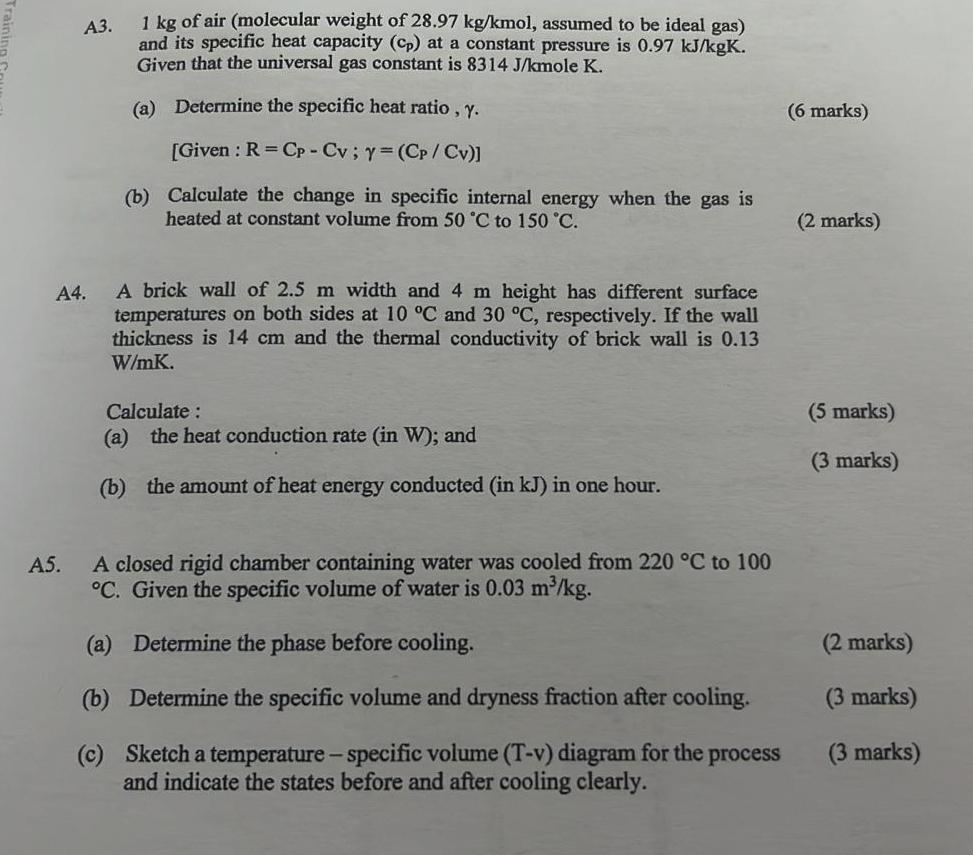Answered step by step
Verified Expert Solution
Question
1 Approved Answer
A3. A4. A5. 1 kg of air (molecular weight of 28.97 kg/kmol, assumed to be ideal gas) and its specific heat capacity (cp) at

A3. A4. A5. 1 kg of air (molecular weight of 28.97 kg/kmol, assumed to be ideal gas) and its specific heat capacity (cp) at a constant pressure is 0.97 kJ/kgK. Given that the universal gas constant is 8314 J/kmole K. (a) Determine the specific heat ratio, y. [Given: R= Cp - Cv; Y = (Cp/ Cv)] (b) Calculate the change in specific internal energy when the gas is heated at constant volume from 50 C to 150 C. A brick wall of 2.5 m width and 4 m height has different surface temperatures on both sides at 10 C and 30 C, respectively. If the wall thickness is 14 cm and the thermal conductivity of brick wall is 0.13 W/mK. Calculate : (a) the heat conduction rate (in W); and (b) the amount of heat energy conducted (in kJ) in one hour. A closed rigid chamber containing water was cooled from 220 C to 100 C. Given the specific volume of water is 0.03 m/kg. (a) Determine the phase before cooling. (b) Determine the specific volume and dryness fraction after cooling. (c) Sketch a temperature-specific volume (T-v) diagram for the and indicate the states before and after cooling clearly. process (6 marks) (2 marks) (5 marks) (3 marks) (2 marks) (3 marks) (3 marks)
Step by Step Solution
★★★★★
3.41 Rating (148 Votes )
There are 3 Steps involved in it
Step: 1
A3a To determine the specific heat ratio gamma we can use the relationship CpCv where Cp is the spec...
Get Instant Access to Expert-Tailored Solutions
See step-by-step solutions with expert insights and AI powered tools for academic success
Step: 2

Step: 3

Ace Your Homework with AI
Get the answers you need in no time with our AI-driven, step-by-step assistance
Get Started


